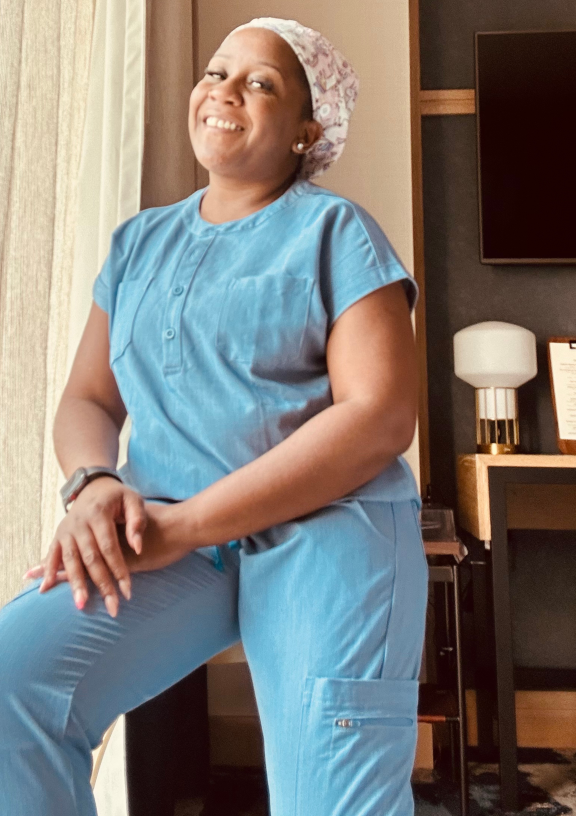What Are the Disadvantages of Having a Doula? Here’s the Honest Answer You’re Looking For

Thinking about hiring a doula but wondering if there’s a downside?
Here’s an honest, balanced look at the potential disadvantages—so you can make the best choice for your birth.
You already know the benefits.
- Doulas lower C-section rates.
- They help you feel calm, confident, and supported.
- They hold space when the room is spinning.
But you didn’t come here for the highlight reel.
You came for the real answer:
What are the disadvantages of hiring a doula?
Are there downsides? Is there anything I should be cautious about?
Let’s walk through it—no fluff, no fear, just grounded truth.
1. A Doula Isn’t a Medical Professional
A doula can’t check your cervix, monitor your baby, or make clinical decisions.
Some people expect their doula to do it all, and when they find out she doesn’t handle medical care, they’re surprised.
But here’s what matters: your doula isn’t there to replace your provider.
She’s there to support you—emotionally, mentally, physically.
She stays when the shift changes.
She translates when the medical language gets murky.
She reminds you of your options when the room gets quiet.
Curious how this works in real-time?
2. It’s an Out-of-Pocket Investment
Most insurance companies still don’t cover doulas. That means this kind of support is something you have to prioritize—and pay for.
And yes, it’s a financial decision. But it’s also a values decision.
You’re not buying a product. You’re investing in how you’ll feel during one of the most intense, sacred, and vulnerable experiences of your life.
Still debating? Here’s a breakdown of why Doulas are worth the money
3. The Wrong Doula Can Add Stress, Not Ease
Here’s the truth: not every doula is the right fit.
And if your personalities or birth philosophies don’t align, it can feel like an added layer of tension instead of support.
The answer isn’t “skip the doula.”
It’s take your time finding the right one.
Someone who listens deeply, respects your vision, and knows how to read the energy of a room.
Not sure where to start? Here’s how to find a Doula in Houston that actually fits your needs.
4. Sometimes Partners Worry About Being Replaced
This is a common concern—and a valid one.
But a good doula doesn’t take over.
She lifts your partner up. Coaches them through it. Gives them confidence so they don’t freeze up when you need them the most.
The best doulas don’t step in front of your partner. They stand beside them—and show them how to stand beside you.
Need help getting your partner on board? Read:
You can also help him feel more prepared with this:
5. A Doula Can’t Guarantee a “Perfect” Birth
Even with the best team, birth can take unexpected turns.
A doula can’t stop that. What she can do is help you stay grounded when things shift.
She’ll help you breathe through decisions.
She’ll help you advocate when you’re tired.
She’ll help you feel powerful—even when the plan changes.
Want tools to stay centered no matter what? Try these 3 things to help reduce stress during pregnancy
“The real disadvantage isn’t having a doula—it’s not having the right one.” Mitsuzi Green- Houston Doula
Ready to See What It Feels Like to Be Fully Supported?
If you’re planning a hospital birth and want a doula who understands your desire for presence, peace, and power—book a free consultation with me.
Not ready for a call yet?
Join my newsletter for honest, empowering guidance on preparing for birth—on your terms, with your values at the center.
This isn’t just about having a baby.
It’s about having an experience you’ll carry with you for life.
Frequently Asked Questions
Do doulas replace the partner?
Not at all. A skilled doula supports your partner so they feel confident, grounded, and fully present—not pushed aside.
Are doulas only for natural births?
No. Doulas support all types of births, from unmedicated to epidural to scheduled C-section. They’re there for you, not your birth plan.
Can a doula advocate for me in the hospital?
A doula can’t speak on your behalf, but she can help you find your voice, clarify your options, and stay connected to your vision—even in a fast-paced hospital setting.








